Here’s Why Manila Is the Best Place to Be an Expat
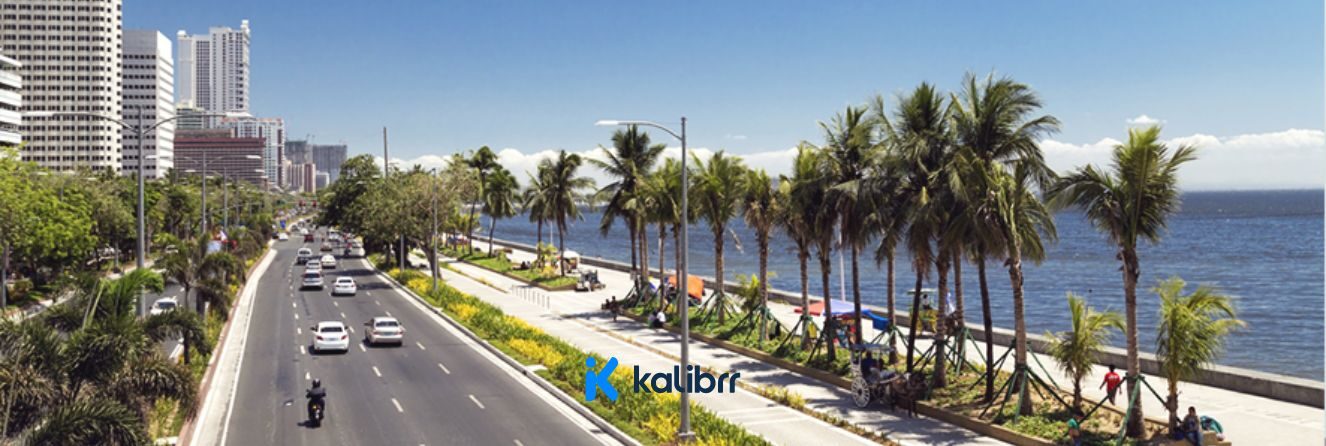
Forget Singapore, forget Hong Kong. Manila is the best place to be an expat — and 10 expats will tell you why.
We’ve all heard that Manila has increasingly become a center of economic growth and foreign investments, and with great foreign investments come a great number of friendly neighborhood expats. In 2010, the NSO stated that almost 200,000 foreigners were living in the Philippines. I don’t know what the current number is now, but based on observing the pedestrians of Makati, I would boldly say that 2 out of 20 pedestrians are not Filipino.
A lot of people might ask – why is Manila the best place to be an expat where are so many opportunities for them in the urban jungles of Singapore and Hong Kong? We talked to some expats from the Netherlands, America and even all the way from Colombia who all settled in the Philippines once they saw the great opportunities waiting for them here.
TOPICS
Jacqueline Van den Ende, Managing Director of Lamudi Philippines

Jacqueline, from the Netherlands, arrived in the Philippines in 2013 as the managing director of Rocket Internet’s Lamudi, their online real estate marketplace. Since she’s arrived, she couldn’t imagine being anywhere else. She loves traveling around the country and even goes surfing for weekend escapes. However, she loves living in the cosmopolitan city of Manila.
“Manila is a great destination for expatriate employees,” she said. “Cost of living here is not very expensive unlike Hong Kong and Singapore, though the city provides a quality of life that’s comparable to Bangkok or Jakarta.”
Jacqueline believes that one of the best attributes of Manila is its openness to different cultures as well. “It will be easy for expats from all types of backgrounds to settle in Metro Manila. Filipinos are world-renowned for their hospitality and their friendliness is definitely unlike anything I’ve ever experienced.”
Mauro Cocchieri, Managing Director of foodpanda Philippines

Mauro comes from Italy, a country known for its great cuisine and accommodating people.He worked at Lazada before becoming the managing director of foodpanda, an online food delivery platform.
Despite his country’s solid culinary reputation, he claims that the Philippines has amazing food and amazing company which goes hand in hand. “The people are very accommodating and they go out of their way to help you. The food, hands down, is one of the best I’ve had.”
Mauro, however, cannot help but crave for some homegrown Italian food from time to time. When asked if he often orders through foodpanda he said, “Of course! With my busy schedule, it always pays to have an alternative.”
David Margendorff, Co-Founder & Chairman, PawnHero Philippines

Our third European on the list, David Margendorff hails from Germany.
He praises Filipinos for their fun culture and hospitality, but emphasizes that Filipinos are some of the most ambitious and talented professionals he’s ever met. David started PawnHero in 2015, and has chosen Manila as the first city to launch it in.
PawnHero is the first online pawnshop in Southeast Asia. The company promises to give Filipinos a cheaper alternative to existing pawnshops which charge extremely high interest rates. “We want to solve the problem of expensive credit for consumers who might not be able to afford it,” he says.
David has lived in 7 countries for the past 6 years, but he eventually chose to settle in the Philippines. He plans to stay here long-term, mainly because he can see how much impact he can create through PawnHero.
Jimmy Cassells, CEO of Spiralytics
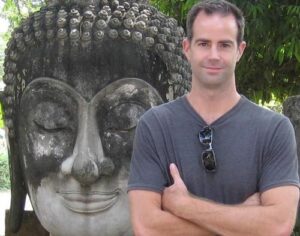
Jimmy is from the United States and has been living in the Philippines since 2005. He is one of the minds behind the quick growth and expansion of online fashion marketplace Zalora. Two years ago, he started his own company called Spiralytics, which provides a range of services in digital marketing to some of the biggest brands in the Philippines.
“I love the Philippines!” expressed Jimmy. “People are so warm, embracing, endearing, and the culture here is wonderful. At work, the team becomes good friends with each other. Everyone definitely feels like they’re part of the ‘barkada.’”
Jimmy also exclaims that the tech community here in Manila is exploding with brilliant startup minds. He continues by saying that not all startups are destined for success, but when startups fail, there is still a very low cost of failure when you start in the Philippines. He states, “Failure in the US often means millions of dollars. Here, you can cut that by a factor of 10.”
He also loves the nightlife, the weather, and the beautiful beaches and unlimited dive spots of the Philippines. His favorites include the Tubbataha marine sanctuary, Malapascua for thresher sharks, and Coron for the sunken Japanese WWII warships.
When asked if there was anything else, he said, “Yes! Four months of Christmas which leads up to one of the most amazing fireworks displays in the world. It’s more fun in the Philippines!”
Ezra Ferraz, Chief Content Officer at Zipmatch.com
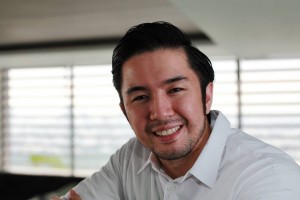
Of Filipino heritage, Ezra Ferraz taught writing for three years at the University of Southern California and grew up in the US. He moved to the Philippines not very long ago, and writes for Rappler. He currently works at Zipmatch, another online real estate marketplace. He’s interviewed almost every Filipino entrepreneur you can think of, including Erwan Heussaff, and he believes that the Philippines is definitely a great place to pursue business.
Ezra explains that the entrepreneurial sector in the Philippines is still a small community. “It’s much easier to meet the entrepreneurs changing X industry or Y space because there are relatively few of them, compared to what you might find in another city of similar size.”
“You are never really more than one or two degrees away from someone you’d like to meet,” he adds, “And due to the overwhelmingly friendly culture of the Philippines, other entrepreneurs generally welcome you with open arms.”
Farouk Meralli, CEO of mClinica
Farouk Meralli is a Harvard School of Public Health graduate who worked in strategy and management for major pharmaceutical companies Roche, Johnson & Johnson, and Pfizer before finally becoming an entrepreneur himself. He founded mClinica, the largest pharmacy network in the country with a growing network of over 1,400 pharmacies and access to over 20 million customers.
He chose the Philippines as their launch market for mClinica because it provides an interesting test environment for creating truly global products. “The Philippines represents a fascinating intersection between the East and the West. Due to its cultural and political history, one can identify behavioral norms and practices that fit both Eastern and Western paradigm,” he said.
After launching in the Philippines, mClinica is expanding to several emerging markets after leveraging on their experiences in the country. Farouk insists that while he is based in their Singapore headquarters and travelled in many Asian markets, the Philippines is undoubtedly his favorite. To him, it represents the best of both worlds.
Robin Leonard, CEO and Co-Founder of AllFamous Digital
Five years ago, Robin Leonard moved from New Zealand to the Philippines to start working at IBM before finally starting his own company, AllFamous Digital.
Robin said that coming here alone wasn’t problem and not that difficult. “Within weeks I had a big group of Filipino and foreigner friends and colleagues that were very welcoming. Culture at work is very family oriented.”
Working culture in the Philippines is not what Leonard is used to back home — and he means this positively.
“Getting people onboard requires one on one lobbying, not big meetings. Laughter is commonplace and gangs or ‘barkadas’ form between staff, often resulting in life-long friendships, which is a good thing. As a foreigner, you need to accept that you will sing karaoke, and over time, you will learn to give it your all when Hotel California plays.”
According to Robin, the Philippines also serves as a great place to work because business is done in English. However, he admits that he’s earned a couple of ‘brownie points’ with Filipinos by learning a few keywords in Tagalog.
“It often creates a giggle or surprise if you drop a Tagalog word here and there,” he adds.
He leaves us with a couple of wise words for future expats who want to start their business here: “Crack the big city lifestyle of Manila and you’ll find that it is a gold mine of opportunity, especially for the “expatrepreneur.”
Joost Boer, VP of Operations at Gourmet Society Philippines
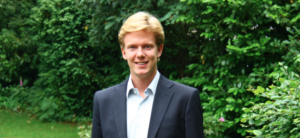
Joost Boer comes from the Netherlands, a country known for its liberal capital Amsterdam, but also widely renowned for its cold, rainy weather throughout the year. After arriving in the Philippines, where there is year-round sunshine, warm people, and a stunning array of islands according to Joost, it’s no wonder that he immediately considered establishing himself here long-term.
“You’ll find no country in Southeast Asia where the culture is so welcoming towards foreigners and where the level of English is this well-developed. From a more business-centric perspective, this has a profound impact on the ease of communication with your co-workers as well as on conducting business development,” he adds.
He continues by praising the business outlook and directional perspective of the Philippines. “Here, you’ll find yourself on an upward curve, and the overall levels of optimism are high. This is a far-cry from life in Europe, where the outlook on life over the years has more and more slanted towards pessimism.
He concluded by saying that he strongly recommends his fellow foreigners to consider making the move to the Philippines as well.
Dip Ghuman, Founder of Near
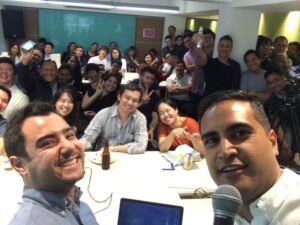
Dip Ghuman worked at Google and Lonely Planet before joining the entrepreneur world. He believes the Philippines’ market is a sleeper — slowly building steam, quietly, ready to pounce on an unsuspecting world economy.
“With the world so focused on Silicon Valley, China, Japan, Europe, etc., no one is looking at the Philippines. Here’s why they should,” he begins.
According to Dip, one of the first things that caught his attention about the Filipino market was that 60% of the population in the Philippines is younger than 20 and that was coupled with GDP growth of 6%+ YoY. Because of these facts, he views the Philippines as a representation of the next financial boom in Asia.
“There is a growing Westernized middle class who speaks perfect English, and this makes the country an ideal springboard to launch your business in Asia. Barring corruption, the Philippines has a small window of opportunity to return the country to its pre-World War 2 status as the ‘Pearl of the Orient,’” Ghuman adds.
Dip says that he’s started two businesses within two years. “I got on that plane in 2014 to start my California wine business, but now I’m focusing on a new hyperlocal mobile messaging app, Near.”
Dip concludes, “Manila is the social media and selfie capital of the world — there is nowhere better for me to be than right here, right now.”
Bryce Maddock, CEO of TaskUs

Bryce Maddock arrived in Manila in 2009 from the United States. He started TaskUs because he was determined to connect the rapidly growing American startups with incredible talent at prices that would enable them to scale. He found what he was looking for in the Philippines.
“When we just started TalkUs, I wouldn’t have been able to find the Philippines on a map if you asked me. We went on a search for affordable talent to support our friends’ startups. We hired people in 16 different countries, but were consistently impressed by the results and work that Filipinos were delivering. We were so impressed, that we opened our first office here, in Bacoor, Cavite and have not looked back since.”
Today, Bryce has 1,600 employees and counting. TaskUs is the secret behind the rapidly growing customer support and back office operations for startups like Tinder and HotelTonight.
“Almost all of today’s most successful startups depend on the talent that exists in the Philippines. Simply put, it’s the people. The people of the Philippines are some of the kindest and most talented people on the planet. Historically, the country exported its people as OFWs. But today a homecoming is happening,” says Bryce. “The next decade is going to be very exciting as talent repatriates and reinvests in the country.”
It’s time for the balikbayans to come back for good.
One of the Philippines’ biggest exports is its own people. Everyone was leaving to work abroad because they believed there was no opportunity for them here. All that amazing talent went into making prosperous countries even more prosperous.
Today, we should acknowledge that that is no longer true. The best opportunities for business are here in the Philippines. Foreigners are flocking here to start their businesses in the perfect Asian beta market. They happily leave their first world countries for what the Philippines has to offer.
We, as Filipinos, should all find it in ourselves to see the beauty of our country the way they do; to finally discover the diamonds that have been waiting to be found for decades.






No comment available yet!